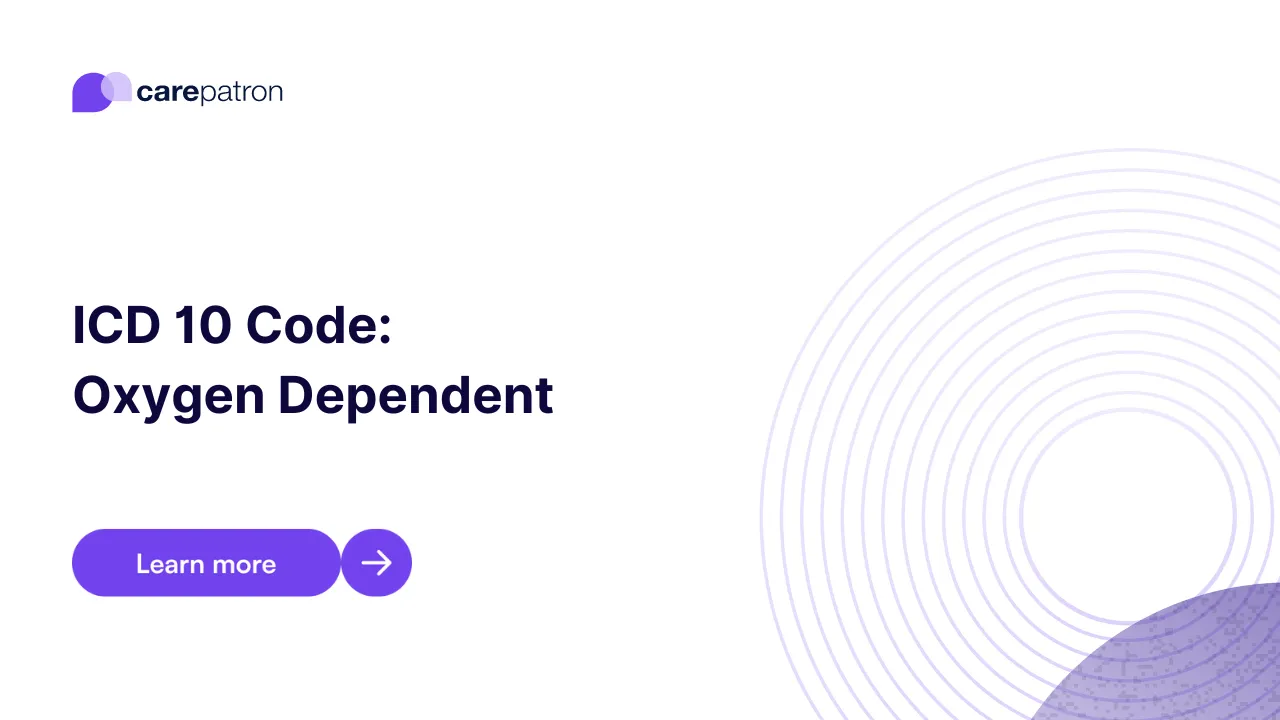Oxygen Dependent ICD-10-CM Codes
Navigate the essential ICD-10 codes for Oxygen Dependent conditions. Equip yourself with accurate diagnosis codes and elevate your medical billing skills.

What ICD-10 Codes Are Used for Oxygen Dependent?
Identifying and using the precise Oxygen Dependent ICD codes can be instrumental for patient care and billing. Below are the principal codes related to this condition:
- J96.11: Chronic respiratory failure with hypoxia.
- J96.12: Chronic respiratory failure with hypercapnia.
- J96.21: Acute and chronic respiratory failure with hypoxia.
- J96.22: Acute and chronic respiratory failure with hypercapnia.
- Z99.81: Dependence on supplemental oxygen.
These Oxygen Dependent ICD codes are tailored to depict the exact state of a patient, ensuring a seamless flow in healthcare processes.
Which Oxygen Dependent ICD Codes Are Billable?
- J96.11: Yes, it relates to chronic respiratory failure with reduced oxygen levels.
- J96.12: Yes, it describes chronic respiratory failure with increased carbon dioxide levels.
- J96.21: Yes, denotes both acute and chronic respiratory failure with low oxygen.
- J96.22: Yes, it signifies both acute and chronic respiratory failure with high carbon dioxide.
- Z99.81: Yes, primarily used for patients reliant on external oxygen sources.
Clinical Information
Oxygen Dependency arises due to impaired lung functions:
- Causes: Chronic obstructive pulmonary disease (COPD), asthma, pneumonia, pulmonary fibrosis, and other respiratory diseases.
- Symptoms: Shortness of breath, difficulty breathing, chronic cough, and rapid heartbeat.
- Diagnosis: Utilizes pulmonary function tests, arterial blood gases, chest X-rays, and other diagnostic tools.
- Management: Primarily centers on oxygen therapy. Additional treatments can include medications, pulmonary rehabilitation, and lifestyle changes.
Commonly asked questions
Chronic diseases that impair lung function, such as COPD, can lead to oxygen dependence to maintain optimal oxygen levels in the bloodstream.
Depending on the cause, some individuals may improve with treatment and therapy, while others may remain oxygen dependent for life.
Not necessarily. While asthma and COPD can lead to oxygen dependency, not every individual with these conditions will require supplemental oxygen.


.png)




.webp)
.webp)
.webp)
.webp)
.webp)
.webp)
.webp)
.webp)
.webp)
.webp)
.webp)
.webp)
.webp)
.webp)
.webp)
.webp)
.webp)
.webp)
.webp)
.webp)
.webp)
.webp)
.webp)
.webp)
.webp)
.webp)
%2520(1).webp)
.webp)
.webp)
.webp)
.webp)
.webp)
.webp)
.webp)
.webp)
.webp)
.webp)
.webp)
.webp)
.webp)
.webp)
.webp)
.webp)
.webp)
.webp)

.webp)





.webp)
.webp)